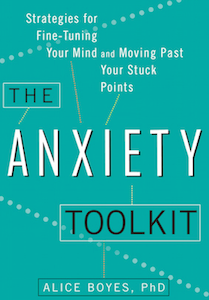There are a couple of ways you can take this relationship self-test. The first is to just rate yourself. Another is to have your partner/spouse also rate you. That way you'll gain knowledge about any discrepancies between your perception of your behavior and your partner’s view.
Instructions: Rate yourself on each of the following using a 1 to 7 scale, where 1 = Not at all skilled, and 7 = Excellent. (See the notes at the end of the article for tips about interpreting the results.)
How skilled are you at...?
1. Perspective taking? (You’re able to see situations from your partner’s point of view.)
2. Taking an interest in what’s important to your partner? (You take an interest in what your partner has going on in their day, and what they’re feeling excited or nervous about.
3. Smoothing things over with your partner after getting irritable with each other?(You can recover from major or minor arguments in a healthy way.)
4. Expressing love and positive emotions through touch? (You initiate a variety of types of affectionate touch.)
5. Having fun in your relationship? (You laugh and have fun together. You make an effort to do things together that you both find fun.)
6. Picking up on your partner’s cues when they need some TLC? (You notice when your partner needs support, and provide a type of support your partner finds useful/soothing.)
7. Empathizing? (You genuinely care when your partner is going through a tough time.)
8. Expressing love and positive emotions verbally? (You're able to say, "I love you," give compliments, express gratitude, etc.)
9. Providing clear-headed advice when your partner wants your opinion? (When your partner is struggling with a decision, you provide useful thoughts and opinions.)
10. Doing your fair share of joint tasks? (You may not divide every task equally, but overall, the division of labor in your relationship is roughly equal.)
11. Trustworthiness? (You're trustworthy. You show up when you say you're going to show up, and don't blab private or embarrassing information.)
12. Introducing your partner to new, positive experiences? (You introduce your partner to new friends or hobbies, or tell your partner about good TV shows or books.)
13. Boosting your partner's self-esteem in areas in which they lack it? (You help your partner recognize their good qualities that they don't fully recognize.
14. Being their emotional rock? (You're emotionally reliable and your partner can have complete confidence that you're in their corner.)
15. Listening without defensiveness? (You're willing to hear your partner's perspective without jumping straight to defensiveness.)
16. Greeting your partner warmly? (When you say hello or goodbye to them, you do it with emotional warmth.)
17. Helping your partner get a clear perspective? (If, for example, your partner tends to jump to negative conclusions, you can help them balance out their perspective.)
18. Compromising? (You can bend to want your partner wants, at least sometimes. You're good at finding a middle ground, and you'll take your partner's suggestions.)
19. Being vulnerable? (You're willing to let your partner into your emotional world, by telling them about your thoughts and feelings.)
20. Understanding your partner? (You know what makes your partner tick—their goals, likes, anxieties.)
21. Soothing your own irritability? (You have skills for dealing with feeling stressed or irritable, so that you don't take it out on your partner.)
Notes
- Whatever your partner’s perspective is, accept that it’s their perspective. Don’t start an argument over whether they’re giving you a “fair” rating. Hopefully you’ll be pleased with how your significant other rates you. If you’re not, you’ve gained some specific feedback you can use to make improvements.
- Some people naturally give lower or higher ratings on quizzes like this one. If your partner rates you lower than you expected, that might just be their rating style.
- Look at the pattern of your partner's ratings as well as the numbers. See if it tracks with how you rated yourself. Did they seem to rate you a point lower than you rated yourself on every item? Were their ratings of your strengths and weaknesses the same as yours (e.g., you each gave you the highest rating for being fun)?

Source: Author
Dr Alice Boyes is author of The Anxiety Toolkit (Perigee/Penguin Random House, 2015).
Subscribe to her blog articles and receive the first chapter of the book free.
Twitter: @DrAliceBoyes
